

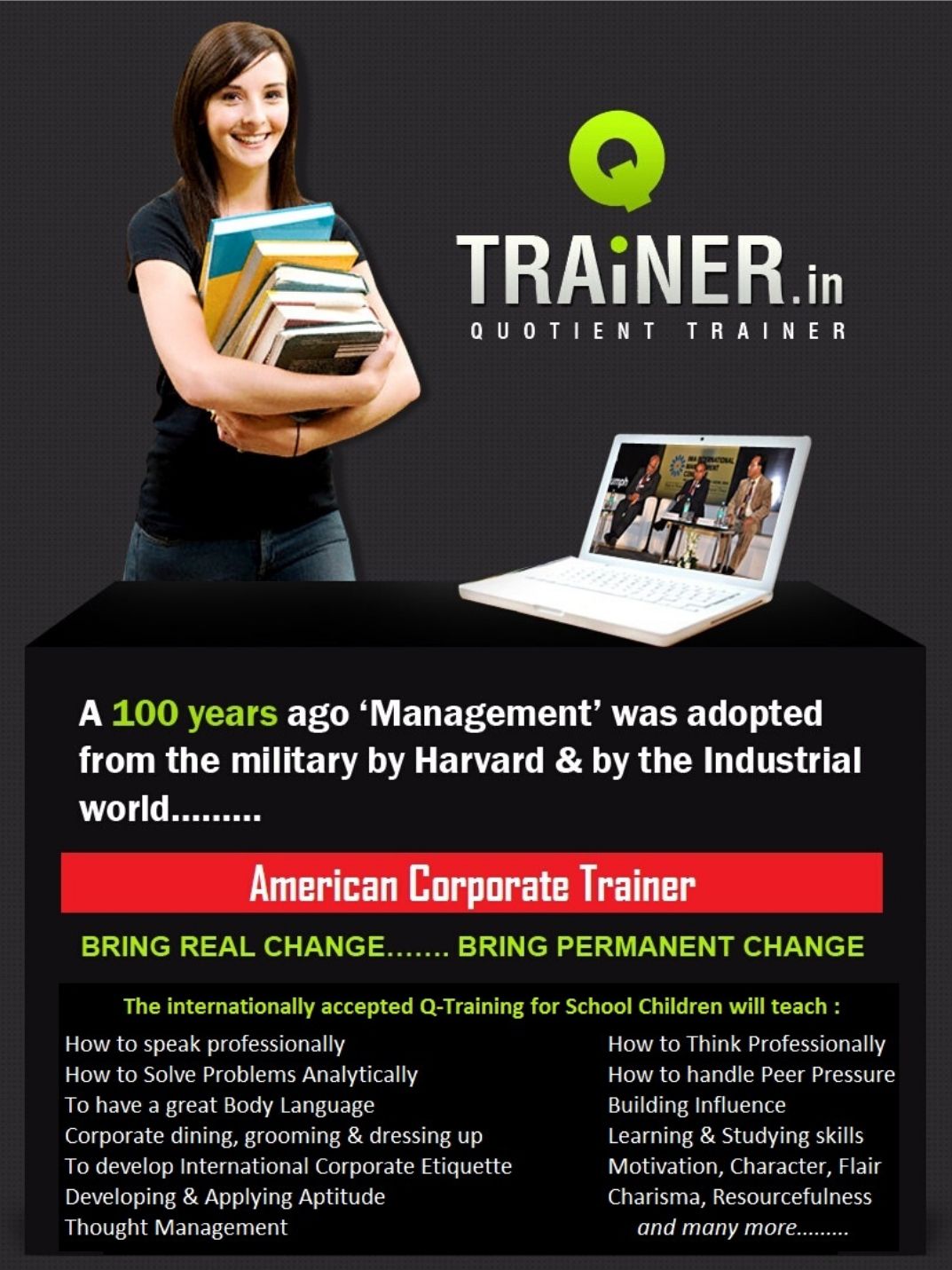

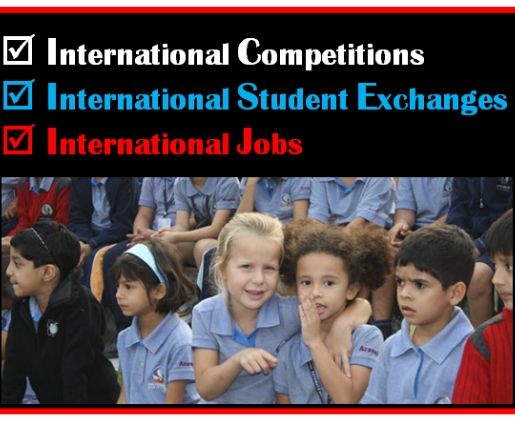

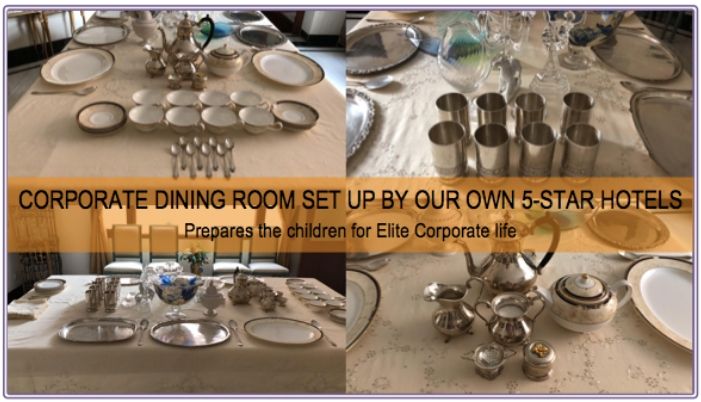
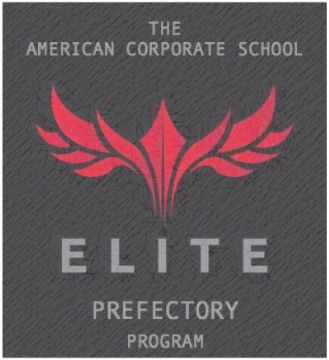
The environment of every school should be such that the children do not strangle their Internal Resources. The SEQ environment (also known as the SEL environment) is common across schools in western world but very rare or even non existent in the Indian Schools probably because it is very expensive to implement it.
We wish to develop the SEQ of the children before we lose another generation of untapped innovative brilliance, therefore we have invested more than 250 crores in creating the infrastructure, syllabus, License fees and training institutes for the implementation & measurement of the EQ of each child (and staff members), as well as the school’s SEL environment!
IQ is responsible for Hiring – SEQ for Firing… Our education system cannot ignore SEQ anymore!
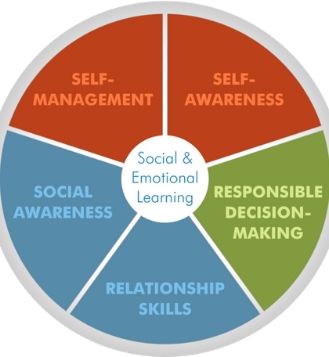
SEQ is a process for helping children and even adults develop the fundamental skills for life effectiveness. SEQ teaches the skills we all need to handle ourselves, our work, and our relationships effectively and ethically. Innovation begins here.
These skills include recognizing and managing our emotions, developing caring and concern for others, establishing positive relationships, making responsible decisions, and handling challenging situations constructively and ethically. They are the skills that allow children to calm themselves when angry, make friends, resolve conflicts respectfully, and make ethical and safe choices. More importantly, they ingrain an analytical and rapid decision making system, enhance memory & learning.
Many of the programs that teach SEQ skills have now been rigorously evaluated and found to have positive impacts. According to reliable research, schools are a highly effective setting for teaching SEQ skills. The benefits are permanent. Powered innovation and success becomes a habit.
SEQ is also a framework for school improvement. Teaching SEQ skills helps create and maintain safe, caring learning environments. The most beneficial SEQ programs provide sequential and developmentally appropriate instruction in SEQ skills. They are implemented in a coordinated manner, school wide, from preschool through high school. Lessons are reinforced in the classroom, during out-of-school activities, and at home. Educators receive ongoing professional development in SEQ. And families and schools work together to promote children’s social, emotional, and academic success. Instead of just achieving academic success due to ‘brilliance in a tunnel’, SEQ enables all round brilliance.
Schools that create socially and emotionally sound learning and working environments, and that help students and staff develop greater social and emotional competence, in turn help ensure positive short- and long-term academic and personal outcomes for students, and higher levels of teaching and work satisfaction for staff.
SEQ improves students’ positive behavior and reduces negative behavior.
It promotes young people’s academic success, health, and well-being at the same time that it prevents a variety of problems such as alcohol and drug use, violence, truancy, and bullying. A large body of scientific research has determined that effective SEQ in schools significantly improves student’s learning abilities, thought management processes, attitudes about self and others & social interactions. It also decreases their levels of emotional distress and conduct related problems.
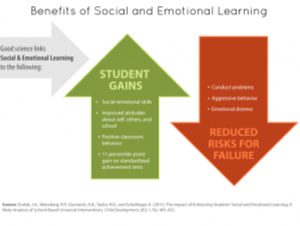
SEQ is also associated with significant improvements in students’ academic performance and attitudes
A landmark review found that students who receive SEQ instruction had vastly improved academic abilities, more positive attitudes about school and improved an average of 11% on standardized achievement tests compared to students who did not receive such instruction.
SEQ prepares young people for success in adulthood.
SEQ helps students become good communicators, cooperative members of a team, effective leaders, and caring, concerned members of their communities. It teaches them how to set and achieve goals and how to persist in the face of challenges. These are precisely the skills that today’s employers consider important for the workforce of the future.
IQ is responsible for HIRING and SEQ for FIRING.
Lack of EQ is responsible for almost every problem that we face, not just at work, but even at home & in relationships.
Today it is believed that IQ is only 20% of learning, the rest 80% being SEQ.
Any school can be a Q school. Our Q schools have a customised environment for learning SEQ. The environment extends from the youngest students till the senior most.
SEQ cannot be taught directly. Q-schools have to create SEQ ‘environments’ modeled all throughout their workplace. They make SEQ something that is not talked about, rather something they just always do.
Of course in a new environment there are very good reasons to teach the important SEQ skills overtly at first too. For one, it gets us all to TALK about them- what they are, why they are important; and secondly, it gives us a chance to PRACTICE them. Practice is the key! How can we expect anyone, adult or a child, to use these skills in the real world when the going gets tough and things get dicey if we haven’t practiced them in better, more ideal conditions?
The Q schools have SEQ trained staff, a custom SEQ enabled environment, a SEQ overt learning program and a SEQ oversight & assessment program. Tremendous amounts of Dopamine is released by the adoption of SEQ skills & we all know how dopamine fires up the learning process, including improved memory, creativity and hundreds of other useful brain functions.
Q schools improve Academic Performance and Educational Outcomes
• In a quantitative review SEQ programs significantly decreased the number of suspensions and expulsions while improving school attendance, students’ attitudes towards school, students’ grades, and performance on achievement tests. The most impressive finding was students’ improvement on standardized test scores.
• Interventions designed to promote social and emotional development also improve long-term educational outcomes for students. They show significantly greater school commitment, a higher score, with much lower incidences of problem behaviors.
Q schools promote Deeper Understanding of Subject Matter
• Integrating social and emotional learning with academic instruction is a particularly effective way of promoting both social-emotional and academic competence. For instance, when students are asked to use SEQ skills such as perspective-taking and problem-solving to understand and analyze subject matter, learning in these content areas improves.
• SEQ encourages students to explore the values and behaviors of characters in a wide variety of fictional situations, and teaches them to consider the needs and perspectives of others. It positively impacted students’ attitudes, motives, and ethical values. Most remarkable among the findings was that students in schools where the intervention was well implemented outperformed comparison students on district achievement tests and achieved higher grade point averages in a four year follow-up study. Student’s reading comprehension scores also significantly improved.
Q schools help Students Learn Well with Others
• Incorporating cooperative learning techniques into the classroom enhances the quality of student learning and academic performance when compared to individualized learning. However, unless the students have good social and emotional skills, i.e., know how to manage and appropriately express emotions, solve problems, address conflicts, and understand the perspectives of others, the academic benefits of cooperative learning groups can be minimized or even negated.
Q schools increase Student Engagement in School
• Student perceptions of teachers’ warmth and support, and of teachers as promoters of positive and respectful social interactions in the classroom, are significant predictors of student’s academic motivation, engagement, and performance. Students who are emotionally connected to their peers, who have “bonded” with adults who value learning and expect high levels of academic performance, adopt the value of academic achievement and have a positive academic orientation.
• The quality of social relationships operating in and around schools predicts positive student outcomes. In schools characterized by high relational trust, educators are more likely to experiment with new practices and work together with parents to advance improvements. As a result, these schools are also more likely to demonstrate marked gains in student learning.
Q schools decrease Behaviors that Interfere with Learning
• SEQ programs, many of which have a prevention focus, decrease the prevalence of high-risk behaviors (e.g., student violence, and drug and alcohol use) that interfere with and detract from learning. SEQ interventions that emphasized active student participation and the exchange of ideas between peers led to the greatest decrease in students’ substance use. Likewise, SEQ programs that foster engagement in school report reductions in problem behaviors, student misconduct and rebellious behavior in school and violence and sexual activity in later life.
Rather than diverting schools from their primary academic mission, improving the social and emotional competence of students and the climate of schools advances it.
SEQ also ensures that schools will address a broader mission of educating students to be good problem-solvers and caring, responsible, and engaged citizens.
SEQL learning fortifies students with the basic skills they need to be successful in school and more importantly in life.
The ability to affect curriculum with our SEL practices is key, whether it’s choosing to be increasingly child-driven or writing our own lessons from our current curriculum.
This helps us see that most material can be taught in a variety of ways, some more effective than others.
It also reinforces that sometimes the process really is the content.
SEQ is a continuous looping structure when implemented effectively.
SEQ is not just about the students, it is equally about the teachers & other staff.
Building in time to reflect, both on school practices and personal growth, means this process loops upon itself.
Typically school programs have direct instruction, but miss the more subtle elements.
Where most programs fall short is that they:
– Focus on messaging Vs. skills
(e.g., “be nice” vs the skill of Increasing Empathy)
– Only provide direct instruction
(i.e., missing the integration into culture of the classroom / school)
– Only focus on students but not on the educators
– Stay at a cognitive / conceptual level
(i.e., teaching and idea vs developing integrity and commitment to applying that awareness)
Our SEQ training takes the time-burden off the students by increasing their learning abilities, skills, memory and EQ. They achieve more in lesser time with lesser effort. They can take on the world.
Without measurement of the specific competencies, the programs lose focus.
You get what you measure
The Q-teams will continuously monitor, inspect and audit the Q-programs for effectiveness and shall suggest course corrections along the way.
Unless the parents understand and implement SEQ at their ends, the program cannot be effective just from 8.30AM to 5.00PM.
SEQ has many layers.
The Q schools create a cultural approach to Social Emotional Intelligence permeated in the school daily life.
The staff and principal in particular have a symbolic approach (i.e walking the talk and creating symbolic moments and artifacts) that shows that Emotional Intelligence permeates the school culture.
They have a curriculum that is planned and ‘owned’ by staff that directly teaches EQ based on the direct needs of students.
SEQ will look different in every school and with every student population.
The Q schools are far ahead of the competition.
And powerfully too…….the results will speak for themselves. Join a globally powered family.
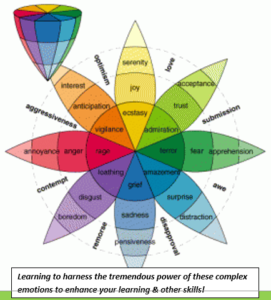
Initial SEQ assessment I SEQ inventory I Setup and customize a SEQ environment I SEQ Teacher training & Teaching plans I SEQ parents I SEQ children
The monitoring process:
SEQ environment audits & inspections I SEQ seminars I SEQ competitions I SEQ intermediate assessments I SEQ Digital I SEQ camps I SEQ reconfigure
Benefits of being a Q-school:
The Q schools are a part of a company that has a heart and truly cares.
The Q team is a council of extremely dedicated, experienced, visionary, qualified, well known national & international experts who have more than 450 years of collective organizational, corporate and educational experience in EQ, Leadership, Internal motivation, Internal resourcefulness, Child psychology and many other allied fields. They are backed by our in house content development and IT teams, and powered by our relentless passion to bring change and to commit any amount of resources at our disposal to do so.
We cannot afford to ignore the chaos around us anymore. We also cannot ignore the fact that innovation in India is severely lacking. If it does take place, it is usually only at the hands of people who have been, or are supported by others who have been working or studying abroad for some time – and at a much later age.
Why can’t our young people, who have been educated here in India, become more creative, innovative, sensitive, empathetic, mature, analytical problem handlers and wholesome learners?
Why was Myspace, Facebook, Hotmail or Google not founded in Indian hostels?
You cannot ignore the fact that our kids are unable to kill the child ego state and some of them behave like amateur loose cannons even in the confines of the best corporate environments. Our kids and other learners engage in behavior which takes away from learning more often and frequently than kids in most other parts of the world, and they continue this trend until their late 30’s or 40’s. They nod their heads in compliance, avoid brain storming & strangle their Internal Resources.
Research behind the Q – we have no competition and we fear none. In 2004, we started out to do good in society and we shall abide by our guiding light & vision. Our research is largely developed in-house thus making our Q-Events, Q-Training and Q-camps absolutely unique and permanently effective.
We do refer to, borrow from, and build upon or adapt to the work of other experts in these fields and have no hesitation in stating that in the present context of EQ, we are deeply indebted to the founders of this concept Mr Daniel Goleman and to Roger P. Weissberg’s Casel group.
The Q schools are standing on the shoulders of giants, including our own.
And, of course, we have the most thorough, well planned and well implemented CBSE curriculum delivery platform anywhere in the country! Read on and be amazed…
All ELITE AMERICAN CORPORATE SCHOOLS use CBSE / NCERT syllabus (apart from the American modules). The school’s Primary Years Programme is structured around six ‘transdisciplinary’ themes which are interconnected and take learning beyond the boundaries of separate subject areas. and Social Sciences exist, they are shaped into a larger transdisciplinary framework around the six themes. These are: Who we are | Where we are in place and time | How we express ourselves | How the world works | How we organize ourselves | Sharing the planet In addition and related to these themes, students pursue courses in Music, Drama, Dance, Art, Technology, Physical and Health Education and Personal and Social Education. Although the medium of instruction is English, all the students also study French & Hindi till Grade 5 (Class 10). All students are thus exposed to three languages. Teaching is based on student centric methods, shaped by diverse learning styles and the theory of Multiple Intelligences. Outside the classroom students will be involved in sports as well as creative activities like dance, drama and music. The Primary School curriculum will introduce your child to variety within learning through a collation of academic activities, sports, arts and community service. All homework in Maths, Science, Computers, English, SST and Corporate subjects for Primary students will be done in the school itself after school ends everyday, 6 days a week. Homework for the languages (Punjabi, Hindi) is given on Saturdays and is left to do at home. Weekend assignments may be given as an extension of class work or project and research work, sometimes specially designed to help students with their language skills. Homework may also be preparatory study for an upcoming assessment / exam. Classroom activities and homework require basic stationery, art materials, study aids, pencil case containing pencils, pens, colouring pencils, crayons, a pencil sharpener, ruler, glue and scissors. At the beginning of each semester, the school will provide a pack of stationery and exercise books. Any additional articles will be provided to the student. Please ensure that all items are marked with an indelible marker. The system of assessment at ELITE AMERICAN CORPORATE SCHOOLS is designed to give regular progress reports to students and parents. Apart from three exams every year, continuous assessment is based on class work, home assignments and projects. This systematic evaluation is put together in the form of a comment-based semester report twice in an academic year. At the end of each Grade, you will receive a detailed profile for your child, based on yearly Primary School Reports and his/her progress through the ELITE AMERICAN CORPORATE SCHOOLS Programme. The reporting system at ELITE AMERICAN CORPORATE SCHOOLS is supported by regular parent-teacher meetings. An essential feature of the ELITE AMERICAN CORPORATE SCHOOLS Programme is the integration of all “co-curricular activities” into the academic programme through the Programme of Inquiry. These activities help organize information and communicate learning. To allow this we assign periods in the timetable for students to engage in creative arts and performing arts, learning and show casing activities. Students are given time to use the Library-Media Centre regularly. They will also spend time on suitable community service, both on campus and in surrounding areas. Students at ELITE AMERICAN CORPORATE SCHOOLS will be given the necessary infrastructure, coaching and time to maintain a desirable level of physical fitness. Parents/guardians are encouraged to support the programme. As part of the Parental Consent Form, you are requested to give permission for your child to join school-organized trips. These trips, chaperoned by school teachers and staff, may include trekking, camping, sports/cultural trips or visits to other schools, public institutions, public places AND MAINLY TO CORPORATE HOUSES to facilitate understanding of concepts and systems being dealt with in a Unit of Inquiry. The school is divided into Seven houses: Fresher House All students join the fresher house for at least 6 months after they take admission After a minimum of 6 months, i.e. 2 report cycles, they are distributed in the following houses as per their dominant qualities: Emily House All those students who are excellent in etiquette, mannerisms, grooming & Corporate Lifestyle will be assigned to the Emily House, named after Ms Emily Post, the forerunner of Etiquette, Grooming and Corporate Lifestyle. Patience House All those students who excel in our Empathy Based Leadership Lifestyle will be assigned to the Patience House, named after Ms Patience Salgado, our iconic partner, also known in America as The Kindness Girl. Daniel House The students who display the highest sense of E.Q. in their activities and behaviour will be assigned to Daniel House, named after Daniel Goleman, the father of E.Q. Prefectory House The overall best students in Academics & with a sense of responsibility will be given this house Sports League House The overall best students in sports will be given this house. Excellence House The overall best students who have been in at least four of the five middle houses for at least one term each will be assigned to the Excellence House. All school teams and interschool competitions will be handled by the Excellence House House are assessed and re-alloted every year based on overall and specific performance. Every child must strive to be part of each house for at least one semester and eventually try to make it to the Excellence House. Each house is led by a teacher coordinator, a house captain and vice-captain. These houses are the focus of many important educational activities which take place outside the classroom. Through this system we try to create a feeling of belonging among students of different grades, while promoting healthy competition in sporting and cultural activities. Our system of 3-tiered performance based houses has been appreciated all over the world and is part of our American Corporate License We believe in nurturing the leadership and talent which is innate in every child. One way of doing this is through the Primary School student council. The election process in Primary School involves both teachers and students. Teacher nominations are presented to students from grade 3-5 (class 6 to 10). Our classrooms are installed with specially made designed furniture. The design specifications of our classrooms allow them to be comfortable, optimally lit, and fully air-conditioned. The maximum capacity envisaged is 25 students. The tables and benches are carefully carpentered to ensure that the edges are round and smooth so that that it cannot hurt the children. It has further been ensured that the furniture is comfortable enough to keep the child’s posture straight and upright. Each classroom is well equipped with the newest quality of study furniture, racks, pegs, pigeon-holes and many more features for the children to stack up their required study and activity material. There are also a host of bulletin boards and display boards placed both inside and outside the classrooms. Most importantly, while adhering to the global standards that ELITE AMERICAN CORPORATE SCHOOLS are committed to, the “e-learning system” has been incorporated as an integral part of the school’s learning system. For this, there are “smart boards” with “e-content” provided in each classroom. However, we strongly believe that technology will never be able to replace books though it may well alter its appearance. A library endowed with thousands of articles and books coupled with a resource centre, carves out an impeccable amalgamation of wholesome knowledge provided to all the students. A huge spectrum of books authored by acclaimed writers of various genres is available to children at the ELITE AMERICAN CORPORATE SCHOOL Library. This encourages and inculcates in them a love for reading that not only provides sheer joy but also further develops and enhances many skills in them. Further, the growth of information and communication technology (ICT) in society is reflected in government policies to encourage the use of ICT in education and the development of educational multimedia. As the role of educational multimedia increases, it is increasingly important to have an idea of the potential it affords for teaching and learning. Thus, by understanding its significance, we plan to proffer this facility to our senior students. Our Library-Media Centre also features story telling counters where children can enjoy and relax by quietly listening to stories. While the general curriculum is followed by every student, he or she is also encouraged to develop talents and interests in personal areas of academic interest, and in sport, theatre music and dance, for which facilities are outstanding. AT ELITE AMERICAN CORPORATE SCHOOLS CHILDREN ARE ENCOURAGED TO ASK US QUESTIONS…. Recapitulation is done with the help of worksheets and questions formed by the teacher after the completion of a concept. To find out whether it has been well received by the children, a structured work sheet is provided to each student. This is based on the principles of knowledge, recall, comprehension, application and analysis. At the senior level the focus is increased on assignment based studies and group activities. Our methodology concentrates first on the student’s aptitudes, then on the skills and knowledge they need to acquire. Traditional education tends to value a limited range of knowledge and skills but more recent research suggests that intelligence is not unitary but multiple. We aim to give students a broader, deeper, richer educational experience by recognising each student’s strongest talents and building on them in order to ensure that all the areas of talent are developed. The Multiple Intelligences research of Dr. Howard Gardner of Harvard University provides a new insight into student-centred learning. Much of traditional education values a very limited range of abilities, centring on literacy and numeracy. However different individuals have different aptitudes. Gardner identified eight ‘intelligences’: Linguistic – Developed at AMERICAN CORPORATE SCHOOL through such activities as creative writing, literature, foreign language learning, theatre, debating and public speaking. Research suggests that many of us remember: • 10% of what we read If we recognise that individual students have different ‘intelligences’ it is logical to allow them to develop these different talents through individual projects. Well-organised Primary classes frequently function like this. ELITE AMERICAN CORPORATE SCHOOL aims to develop motivated, confident articulate students with the skills necessary for independent study. Observing that teachers are also learning, young people are themselves encouraged to become Life-Long Learners. Because the campus is student-friendly, with universal access to IT and other technological support, students become aware from the outset that learning can and should be ‘Anywhere-Anytime’.CBSE Curriculum Delivery

CURRICULUM
While the core academic disciplines of Mathematics, Language, Arts, ScienceTEACHING AND LEARNING
We will try to nurture your child’s individuality and talents, while exposing him/her to a vast field of interests. We encourage a stress free environment in which your child can learn both through classroom teaching and extracurricular activities.
To enable this process of personalized and focused teaching we try to limit the class size to 25 students. A qualified teacher, supported by an assistant teacher, takes charge of one class. Hindi, Music, Art, Information Technology and PE are taught by subject specialists. Classroom teaching is generally individualized, with students working in small, dynamic groups which reflect their abilities.HOMEWORK

ACADEMIC MATERIALS
REPORTING AND ASSESSMENT
• Form Meeting at the beginning of the semester
• Parent meeting (open day) before the semester break
• Parent Meeting and Report at the end of the semesterACTIVITY
PHYSICAL FITNESS & SPORTS
Students of the Early Years Programme will follow a plan to grow motor coordination, strength, flexibility, and stamina. Gradually, activities that develop skills to lead up to sporting activities will be introduced and students of grades 6 & 7 will engage in various sports.
At the moment we offer the following sports and games: • Basket Ball • Swimming • Soccer • Athletics • Cricket • Table Tennis • Volleyball • Tennis • Horse Riding • Squash • GolfFIELD TRIPS
HOUSE SYSTEM
STUDENT COUNCIL
After the candidates address the audience, students vote for the Council, and then house wise for their captains. Subsequently, all grade 5 students go through a five-day orientation, which is followed by the investiture ceremony for council members. The remaining Grade 5 students become monitors for other grades and help the Council with their work.CLASSROOMS
Technology is extensively used as a learning tool. Every Secondary School student is required to carry a tablet computer that is linked by campus-wide wifi-networking.
The controlled-temperature environment is ideal for relaxed and purposeful study. There are first class Science facilities, a spacious Library-Media-Centre and well-equipped studios for Art and Craft-Design-Technology.METHODOLOGY & LEARNING STYLES
“During the primary years the approach is enquiry based where children question, enquire, brainstorm and understand by doing things. An increasing number of activities are taken up so that children understand the concept comprehensively and well”
ASK HUNDREDS OF QUESTIONS…….AND WE ANSWER ALL OF THEM!
The child’s level of understanding is indicated through a “rubric” where the parameters are set under, “beginning /approaching /meeting /exceeding”.MULTIPLE INTELLIGENCES THEORY: A LEARNING TOOL
By using the strongest aptitudes or ‘intelligences’ as a starting point we can educate more effectively by teaching different students the same topic in different ways according to their particular ‘intelligences’. In a class situation, this approach allows students to benefit from each other’s strengths and to develop their competence in their weaker as well as in their stronger ‘intelligences’.
Logical-Mathematical – Developed at AMERICAN CORPORATE SCHOOL through such activities as science and maths projects, experiments, industrial design, stock-market games and helping to run the student store.
Musical – Developed at AMERICAN CORPORATE SCHOOL through such activities as playing, directing, studying and composing classical and contemporary music.
Bodily-Kinesthetic – Developed at AMERICAN CORPORATE SCHOOL through such activities as sports and athletics, yoga, modelling, textile-making, contemporary and classical dance.
Spatial – Developed at AMERICAN CORPORATE SCHOOL through such activities as sculpture, drawing and painting, photography and geography.
Naturalist – Developed at AMERICAN CORPORATE SCHOOL through such activities as ecology, gardening, wild-life observation, biological and chemical experiments.
Inter-Personal – Developed at AMERICAN CORPORATE SCHOOL through such activities as group projects, peer teaching and counselling, media work (including student magazines and the Yearbook) and international exchange programmes.
Intra-Personal – Developed at AMERICAN CORPORATE SCHOOL through self-awareness training, counselling and the creation of physical and personal space for meditation, reflection and tranquility.PROJECT BASED LEARNING
• 20% of what we hear
• 30% of what we see
• 70% of what we discuss with others
• 80% of what we experience by doing
The fact that the project is the student’s own ensures that they work with complete concentration & enthusiasm which ensures that they remember what is learned.LEARNING TO LEARN
ANYWHERE-ANYTIME LEARNING